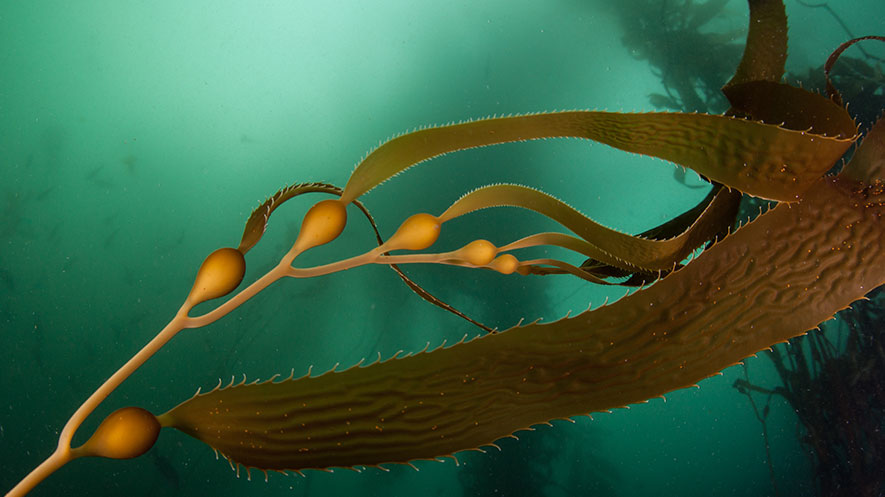Seaweeds and seagrasses have potential to mitigate some effects of ocean acidification, according to a new report presented to the California state legislature earlier this month. California Sea Grant Extension Specialist Joe Tyburczy, who is based at Humboldt State University in Humboldt, California, served on the working group that wrote the report.
"The major take-home message in the report is that seagrass and kelp may be quite beneficial for reducing the impacts of ocean acidification, especially in California's bays," Tyburczy says.
While many details remain to be studied, the researchers say that restoring or preserving seagrass and kelp is a win-win measure that would also bring a number of other benefits. For example, seagrass meadows are important habitat for many marine species, including economically important fisheries like crab. Kelp and seagrasses can also moderate wave impacts, protecting coastlines from storms.
"There are many reasons we'd want to restore or preserve seagrass meadows. The potential of seagrasses to remove carbon from the water is just icing on the cake," says University of California, Davis scientist Tessa Hill, who has conducted related research on the topic funded by California Sea Grant.
Researchers presented the report to the legislature earlier this month in Sacramento, as well as results of related research on the topic.
Hill says, "California is at a moment in time where we are showing leadership on how to both address climate change and also help communities adapt to climate change. Our state government has been very innovative in this respect, and has asked for scientific research that will help them make decisions on that pathway."
Hill and Tyburczy are both working on continued research to understand how and where seagrass preservation or restoration could help buffer ocean acidification. Tyburczy says, "There are big questions about how much seagrasses and seaweed alter water chemistry and how effective they may be. The biomass and physiological status of kelp and eelgrass, amount of light, amount of water, and how quickly the water is moving are all major factors."
For more information, click here.





